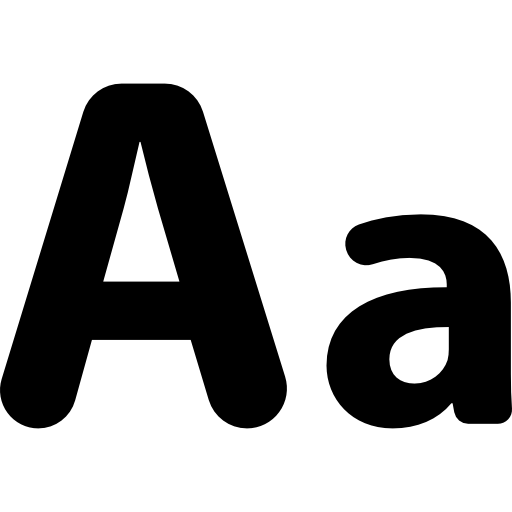The steps Türkiye has taken in the education system in 20 years have been evaluated in a comprehensive report prepared by the OECD.
Evaluations in the report were gathered under the headings of "participation in education", "equal opportunity in education" and "the quality and performance of the education system".
In the last section of the report, which drew attention to the fact that Türkiye has achieved significant success in all areas examined and greatly increased its performance, suggestions were made for the continuation of the improvement.
Significant increase in participation in education
According to the first part of the report, which examines the change in the participation rates in education and training at different age levels in Türkiye over time, Türkiye's enrollment rate for the 5-14 age group is 99 percent which is above the OECD average which is approximately 98 percent. The enrollment rates for the 3-4 year age group in Türkiye on the other hand, remained below the OECD average.
The report emphasized the increase in the enrollment rates of the 3-5 year old age group in Türkiye since 2014. In order to increase these rates, attention was drawn to the contribution of 6 thousand new kindergarten capacities created as part of the Early Childhood Education Campaign launched by the Ministry of National Education (MEB) in 2022.
Stating that Türkiye is the country that has increased the participation of 25-34 year olds in education and reached at the highest level in the last 10 years. This increase was considered as the result of the increase in participation in education at secondary and higher education levels in Türkiye.
High resistance towards the global crises
It is noted in the report that despite the global economic crisis in 2008, participation in education in Türkiye has increased more than the OECD average in the 15-29 age group and showed a recovery practically to pre-pandemic level.
It was emphasized that while OECD average of the employment rate of the young people decreased after the 2008 crisis, the rate in Türkiye started to rise again in 2010, and the decrease in the employment rate of the young people in Türkiye during the Covid-19 period was less than the OECD average.
It is also stated in the report that Türkiye showed a significant will to sustain its participation in education and employment rates in times of global crisis.
Support for participation in education and success
The steps taken by Türkiye to increase the participation in education and the success of students were also included in the report.
Early Childhood Education Mobilization, 1000 Schools in Vocational Education Project, Support and Training Courses (DYK) and Remedial Training Program in Primary Schools (IYEP) activities, Conditional Cash Transfer for Education (CCTE) which includes financial support provided to students, and the economic support program initiated in 2022 to support the participation of disadvantaged students in early childhood education.
Supporting the professional development of teachers
The report emphasized the importance of teacher quality for the development of students. In-service training activities organized by the Ministry of National Education and the Teaching Profession Law were also mentioned in the report. It was emphasized that the Teaching Profession Law made the teaching profession a career path and made significant improvements in personal rights.
It was stated that with the contribution of these two important steps, the average training hours per teacher increased from 39 hours to 250.1 hours in a short time, and the participation rate of teachers in professional development activities increased significantly.
It was pointed out that the reflection of the increase in quantity should also be monitored.
Transformation in vocational secondary education
Vocational training was one of the areas that drew the most attention in the report, along with many projects and legal regulations. The report emphasized the increasing production capacity of Türkiye and stated that vocational training contributed to some productions needed by the country during the Covid-19 Pandemic.
It was stated that the initiatives in recent years and the Vocational Education Law have increased and the apprenticeship training capacity for both secondary school students and adults.
The Report stressed that 55 Research and Development Center (R&D centers) opened in vocational and technical upper secondary schools across many provinces in occupational fields contributed to innovative production in vocational education. It was stated that through these Research and development centers the number of intellectual property products has increased.
Increase in Education Expenditure
Although Türkiye is below the OECD average, it has been shown among the countries that have increased their investments in education the most in the last 10 years. It was also stated that a direct budget was sent to all schools for the first time and this exceeded 7 billion liras in 2022.
The report highlighted that there was a significant decrease in the number of students per teacher with education investments and approached the OECD average at all education levels.
Increase in the performance of the education system
Although the OECD average has not yet been reached in reading skills, mathematics and science literacy according to the PISA survey, the report emphasized that Türkiye's performance continues to increase.
Stating that Türkiye's TIMSS application showed an increase in both the fourth and eighth grade levels, the report emphasized that Türkiye has reached its highest performance in the last PISA application in 2018 and managed to increase access to education in this process.
While OECD evaluated the increase in performance positively, the report said that the gap in achievement between students and schools in Türkiye is relatively high.
Areas of improvement and recommended steps
The OECD made several recommendations to further the educational transformation in Türkiye.
OECD recommended that Türkiye should give more role to local stakeholders in education decisions, should reduce classroom creation, increase enrollment rate for 5 year age group to a similar level for 3 and 4 year old age group, increase formal secondary education completion rates and enrich digital education opportunities.
Detailed initial analysis on education reforms
Making evaluations on the OECD report, Minister of National Education Mahmut Özer said that the report is important as it makes a detailed analysis of education reforms in Türkiye in terms of quality and accessibility.
Stating that important projects have been implemented as part of increasing equality of opportunities in education especially in the last 20 years, Özer reminded that they have made policy changes in recent years to increase access to preschool education.
Özer noted that Türkiye's success in education has become visible in the international arena with the inclusive and accessible policies implemented in the field of education. Özer said that they aim to make the country play a leading role in education among OECD countries with policies that take into account quality and inclusiveness.
Efforts were made to ensure that not a single student was left out of the system
Evaluating the OECD's finding that Türkiye is the country that has increased the participation of adults aged 25-34 to education the most in the last 10 years, Özer emphasized that this increase is a result of increasing participation in education at the high school and higher education level in Türkiye.
Pointing out that they have made great efforts to ensure that not even a single student is left out of the system in education with the early warning and follow-up system established to increase enrollment rates, Özer said that they have exceeded their goal by reaching 99.9 percent enrollment rate at the 5 year old age group in preschool, 99.5 percent enrollment rate in primary school, and 99.1 percent enrollment rate in secondary and high school.
Minister Özer stated that they have carried out a comprehensive transformation on education of adults by reaching 12 million 242 thousand 46 citizens in one year. Stating that the contents of the digital platform will be constantly enriched with the Public Education Centers Information Network (HEMBA), Özer said that HEMBA will serve the citizens of the Republic of Türkiye around the world.
Stating that they aim to benefit approximately 2.5 million families from the "Family School" project this year, Özer stated that with the Village Life Center Project, they have implemented a structure in which families can receive continuous education.
Noting that they have also implemented new digital platforms to enable students and adults to access education, Özer added that by developing these opportunities, they are working to build a much more egalitarian and more inclusive education system by supporting not only the children at school, but also supporting their parents.





























